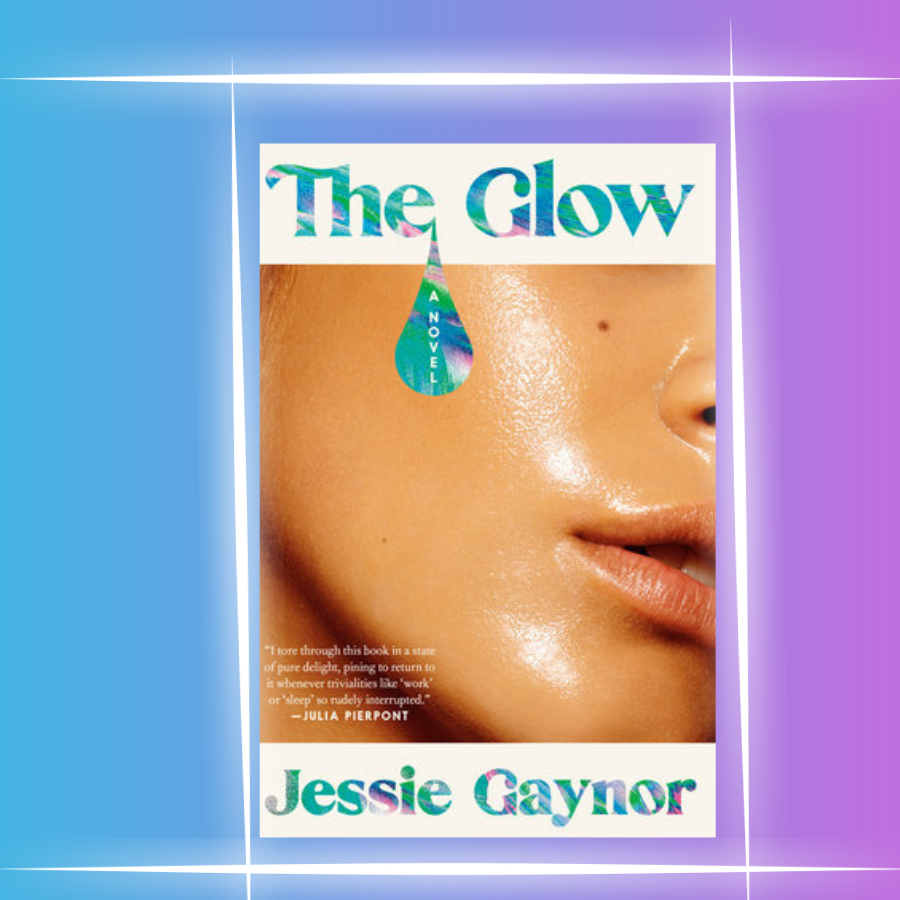This post may include affiliate links, which means we make a small commission on any sales. This commission helps Feminist Book Club pay our contributors, so thanks for supporting small, independent media!
At the start of The Glow by Jessie Gaynor, Jane, a failed poetry student turned PR maven, is listless and lost. She is as invested in PR as she was in her graduate program, which is to say, not at all. Poetry Jane and PR Jane are not the true Jane, she tells herself. It is unclear to the reader, however, if there is any true Jane at all.
Her life, it seems, has consisted of playing a series a roles. And at work, this performance has been slipping. She is on the verge of her losing her job, which, drowning in medical debt, is something she cannot afford to do.
At just the right moment, Jane stumbles upon FortPath, a wellness retreat run by a lithe and luminous, if not entirely literate, woman named Cass. FortPath’s instagram is full of pictures of the effervescent Cass, whose cryptic captions offer the promise of healing and wholeness. FortPath looks like salvation for Jane who, fumbling, insecure and grasping, could use some of whatever Cass has to offer. She also sees Cass and her work as something that she can package and sell.
Jane is a repugnant narrator, driven by greed and self importance. In this, she reminded me of June in R.F. Kuang’s Yellowface. But, while June seems to lack even a modicum of self-awareness, Jane seems to know exactly what she’s doing when she self sabotages, capitalizes on someone else’s talents, and wrongs the people around her. She just can’t manage to help herself.
The similarities between The Glow and Yellowface don’t end with their antiheroes. As Yellowface offers a view of publishing that is so flawed and full of ineptitude that it is hard to decide whether it is completely farcical or true to life, The Glow, does this in its portrayal of commodified wellness.
Predictably, Jane has trouble fitting in at FortPath. She can’t adjust to the diet and its emphasis on summer squash, or the rituals centered around literal and metaphorical group masturbation. This portrayal of a wellness retreat is a sometimes laugh-out-loud funny and hyperbolic satire. But there is also a certain degree of believability. The upperclass, breezy, linen-clad white women at FortPath would be just as at home sitting on their yoni eggs on a Goop cruise.
And while Jane is certainly not someone I’d aspire to be or be near to, there is a relatability in her desire to find a quick fix for all of the aspects of her life. She’s twenty-five and rudderless. And, like the other seekers who arrive there, she comes to FortPath to find a direction, to bring a sense of order to all of the things she can’t control, and to be soothed.
Gaynor writes, “Jane had tried therapy a few times, but it never stuck. She always wanted the therapist to give her the secret to becoming a different person. She wasn’t interested in a belief system that told her she was already enough, that the bare facts of her were not the real problem. She wanted action items. She wanted a chemical peel for her personality.”
Jane, like other women at FortPath, is seeking quick, individualized solutions to systemic problems. Failing that, there is the sense that they would also settle for slightly better skin and a slightly smaller waistline.
The Glow does an excellent job of highlighting these contradictions at the heart of wellness culture. Wellness conflates happiness, healing, and beauty, as if they were all interconnected and achievable through figuring out an expensive and precise method or chemical compound. Of course, as Rina Raphael writes about at length in her The Gospel of Wellness, which very much exists on the same plane as this book, these attempts will always fall short. You can’t buy your way into being better–even though Jane seems to think that you might be able to sell your way there.
The bad behavior, the self-delusion, and the silly righteous seriousness exhibited by many of the characters made this book hard to read at times, but for its comedy, its timeliness, and Gaynor’s talent, I’m glad I stuck with it.
Gaynor, like Jane, was also a poetry student but not a failed one. The Glow is evidence of this. Gaynor’s debut is full of beautiful sentences and pithy phrases in addition to razor sharp wit. It is Gaynor’s voice that made me read on when I’d have otherwise preferred to look away. And, at its best, Gaynor’s debut, like Cass’s complexion, sparkles.


